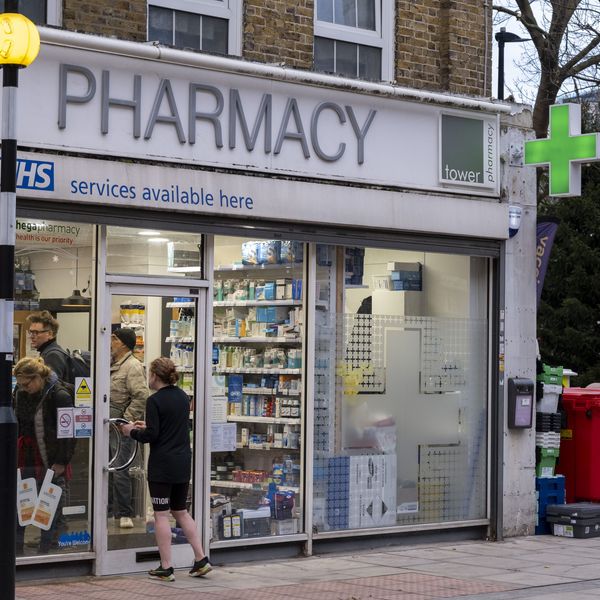European Union leaders announced Thursday they had signed a contract with pharmaceutical giant AstraZeneca exempting the drugmaker from "future product liability" in exchange for it supplying the EU with at least 300 million doses of a still-in-development Covid-19 vaccine by mid-2021.
The deal, announced earlier this month, was made official amid new reporting about lobbying pressure from Big Pharma for protections against potential financial damages as world leaders rush the vaccine development process in light of the global pandemic.
The contract, Stella Kyriakides, EU commissioner for health and food safety, said in a statement, "will ensure that doses of a vaccine which, if proven effective and safe, will be delivered across member states. We expect to announce additional agreements with other vaccine manufacturers very swiftly."
According to the Brussel Times:
In its current form, the [AstraZeneca] deal allows the multinational drugmaker to pass the hot potato of product liability onto national governments, leaving them exposed to the financial consequences of any potential side-effect claims.
The company said that the upside for governments is that they would be providing their vaccine "at no profit" to EU member states, which will be buying the doses at cost price (EUR2.9 per dose).
But critics worry that "effective and safe," including appropriate scientific study of a potential vaccine's long- and short-term effects, will take a backseat to speed given the rush to get the dose on the market.
In a statement to Reuters, Ruud Dobber, a member of AstraZeneca's senior executive team, admitted that the push for the liability waiver had everything to do with the increased risks associated with getting a vaccine to market quickly.
"This is a unique situation where we as a company simply cannot take the risk if in...four years the vaccine is showing side effects," Dobber said.
In an internal memo obtained by the Financial Times, Vaccines Europe, a Big Pharma lobby group that represents AstraZeneca as well as GlaxoSmithKline, Janssen (which belongs to Johnson & Johnson), Merck, Novavax, Pfizer, Sanofi, Takeda, Abbott and CureVac, expressed concern over liability, arguing that current development timelines pose "inevitable" risks for drugmakers.
"The speed and scale of development and rollout do mean that it is impossible to generate the same amount of underlying evidence that normally would be available through extensive clinical trials and healthcare providers building experience," reads the memo, according to Financial Times reporting Thursday.
According to the memo, some people are likely to suffer "adverse events" after vaccination, Financial Times reported. "Even if such events may in fact not be related to the vaccines, such occurrences combined with the sheer scale of the vaccination program and public attention to Covid-19, could lead to numerous damage claims."
Drugmakers were advocating for "comprehensive no-fault and non-adversarial compensation system, and an exemption from civil liability," according to the memo.
Yannis Natsis, who sits as an elected member in charge of patient representation on the board of the European Medicines Agency, told the Financial Times that an exemption from civil liability would create "a dangerous precedent" that could have ramifications beyond the pandemic.
"Such deviations will undermine people's confidence in vaccines," he said. "Governments need to resist pharma pressure and be transparent."
Public skepticism and growing mistrust of governments worldwide support Natsis' concerns. According to one pre-cornoavirus pandemic study, Europe is the most vaccine-skeptical region in the world. In May, Politico reported preliminary results of a study being conducted by the Vaccine Confidence Project, which showed that one fifth of Swiss respondents and 18 percent of those in France would refuse a coronavirus vaccine. Among Austrians, the number was 16 percent, and 9 percent in Germany.
Public confidence in the U.S.--where the law already shifts liability for vaccines from drug companies to the federal government--is also shaky. A Gallup poll released earlier this month showed 1 in 3 Americans would choose not to get a Covid-19 vaccine, even if it were made available at no cost. Political ideology also plays a role in the public's willingness to be vaccinated, Gallup reported. The poll showed 81 percent of Democrats are willing to be vaccinated today if a free and FDA-approved vaccine were available, as were 59 percent of independents and 47 percent of Republicans.
The EU's announcement Thursday comes as U.S. Democratic lawmakers demand to know whether the Trump administration pushed the Centers for Disease Control to relax its Covid-19 guidelines over the past week, and as officials question the president's decision to tap a pharmaceutical executive to lead the Covid-19 vaccine development efforts in the United States.



